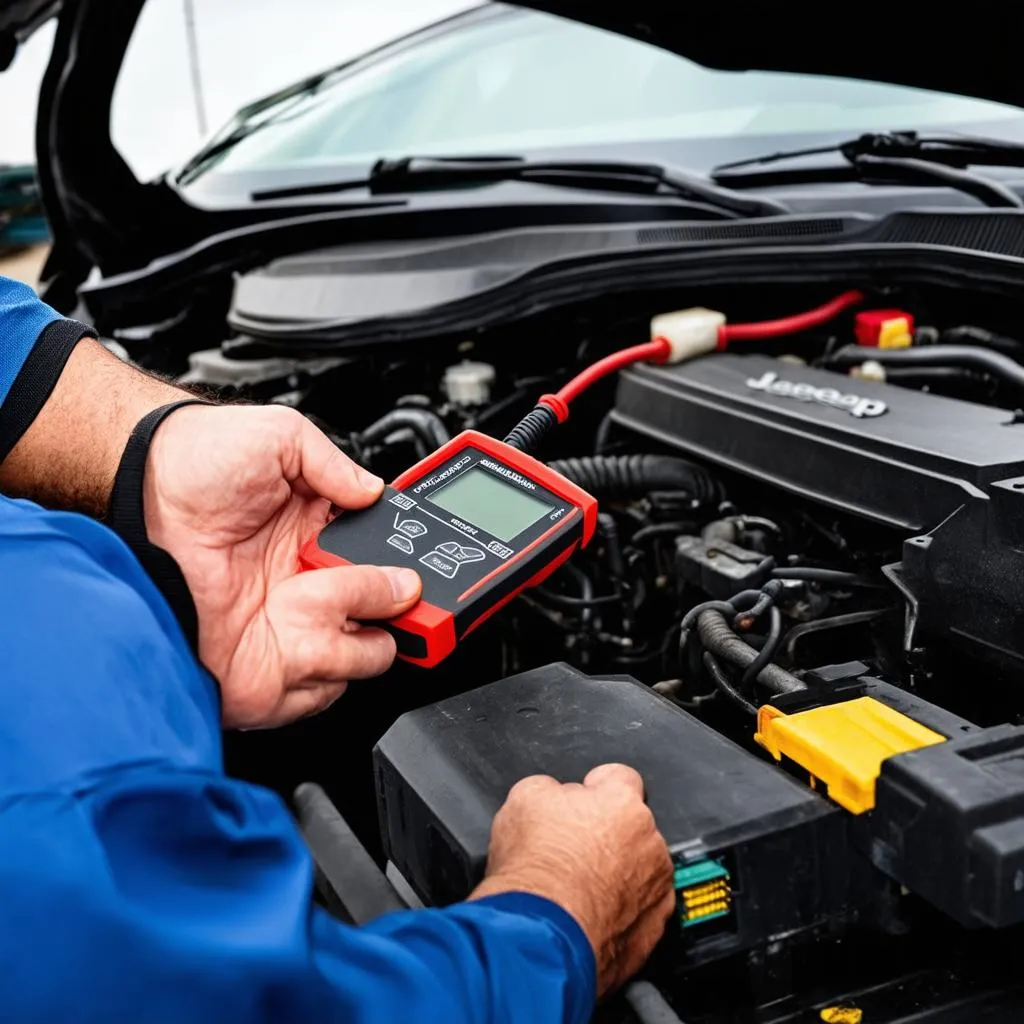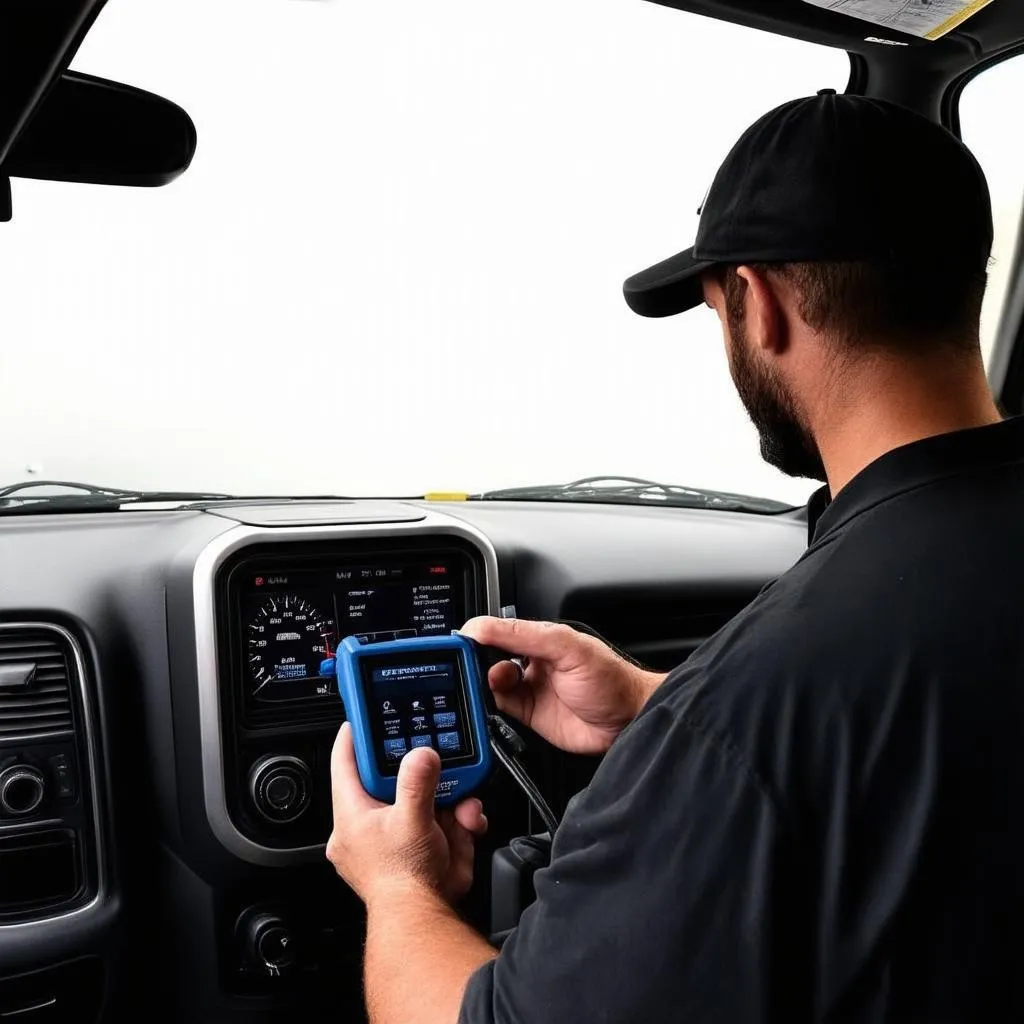Ever had that sinking feeling when your trusty Jeep Cherokee throws a dashboard light your way, leaving you scratching your head? We’ve all been there! The first step to deciphering these automotive hieroglyphics is finding your OBD port. Think of it as the Rosetta Stone for your Jeep, a gateway for communication between your vehicle and a diagnostic tool.
Why is the Jeep Cherokee OBD Port So Important?
This little port under your dashboard is a powerful tool, providing valuable insights into your Jeep’s inner workings. It allows you to:
- Diagnose engine problems: Stumbling upon the “Check Engine” light? The OBD port helps you identify the culprit, whether it’s a faulty sensor or something more serious.
- Read and clear trouble codes: Unearth those hidden codes that your Jeep uses to signal issues. Some codes even disappear after being addressed, acting as your personal mechanic’s checklist.
- Monitor performance: Want to know your fuel economy or track your Jeep’s vital signs? The OBD port allows you to connect devices that provide real-time data.
 Jeep Cherokee OBD Port Location
Jeep Cherokee OBD Port Location
Locating the OBD Port in Your Jeep Cherokee: A Treasure Hunt
Finding the OBD port can sometimes feel like a treasure hunt, but fear not! In most Jeep Cherokees (1996 and newer), it’s located under the driver’s side dashboard, usually near the steering column. Older models (pre-1996) may have it in the engine bay.
Still can’t find it? Don’t fret! Check your owner’s manual for the exact location. It’s like the treasure map designed specifically for your Jeep!
Common Issues and FAQs
My OBD Port Doesn’t Seem to Work! What Now?
- Check the fuse: Just like a household appliance, your OBD port has a fuse. If it’s blown, the port won’t function. Refer to your owner’s manual for the fuse box location and diagram.
- Inspect the pins: A damaged or bent pin inside the port can prevent a secure connection. If you spot any damage, a mechanic can help repair it.
Can I Use Any OBD Scanner with My Jeep Cherokee?
While generic OBD-II scanners work for basic diagnostics, investing in a Jeep-specific scanner offers a deeper dive into your vehicle’s systems, providing more detailed information and advanced functions.
 Jeep Cherokee OBD Scanner in Use
Jeep Cherokee OBD Scanner in Use
Beyond the Basics: Jeep Cherokee OBD Port Uses
Did you know that your Jeep Cherokee’s OBD port can do more than just diagnose problems? Here are some cool things you can do:
- Program new keys: Lost your keys? A locksmith or dealership can use the OBD port to program new ones.
- Install aftermarket accessories: Adding remote start or a trailer brake controller? The OBD port often plays a role in seamless integration.
- Update your Jeep’s software: Just like your smartphone, some Jeep Cherokees receive software updates through the OBD port, improving performance and adding features.
Spiritual Connections and Your Jeep: A Thought
While the OBD port is a purely technological marvel, some Jeep owners believe in a deeper connection with their vehicles. They see their Cherokees as companions on adventures, imbued with a spirit of freedom and exploration. Just like taking care of our own well-being, using the OBD port to maintain our Jeeps ensures they’re ready for the next journey, wherever the road may lead.
For those seeking even more insights into their Jeep Cherokee, here are some related articles you might find helpful:
- 1991 Jeep Cherokee OBD Port Location
- 1995 Jeep Cherokee XJ OBD Port Location
- 94 Jeep Cherokee OBD Port Location
- 2018 Jeep Grand Cherokee OBD Port
Keep Your Jeep Rolling Smoothly!
Understanding and utilizing your Jeep Cherokee’s OBD port is key to keeping it running in tip-top shape. It empowers you with the knowledge to address minor issues before they become major headaches.
Need expert assistance with your Jeep Cherokee’s diagnostics or repairs? Contact us on WhatsApp at +84767531508. Our team of automotive gurus is available 24/7 to answer your questions and provide top-notch support!
